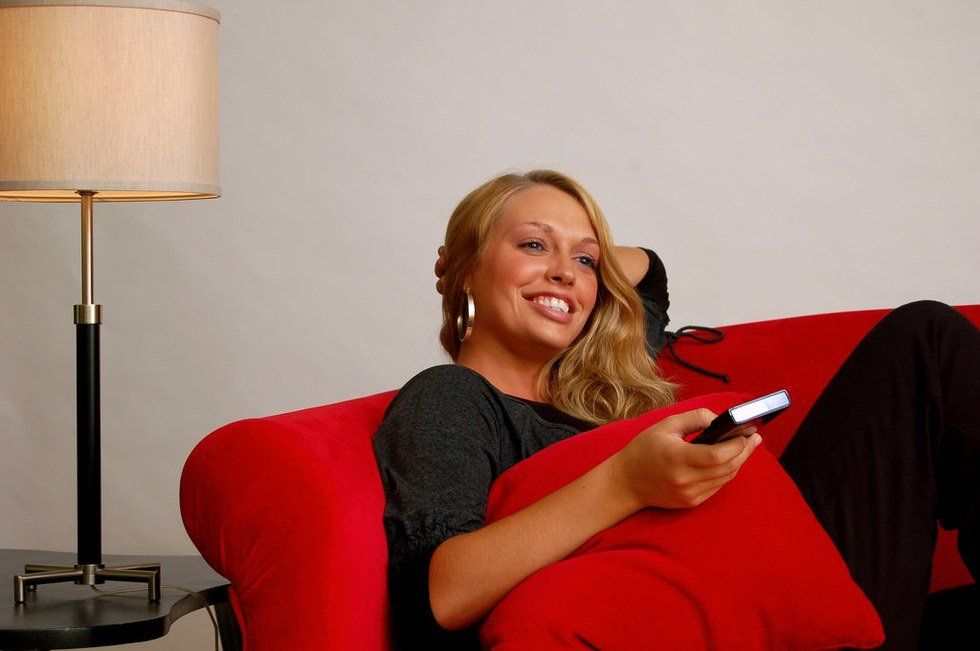I love the TV show “Friends.” Lots of people do – in 2015, the Hollywood Reporter asked industry insiders what their favorite TV show was, and “Friends” won, 21 years after the series premiere and 11 years after the series finale. In many ways, it’s remarkable that this sitcom has managed to maintain relevance. People who were in their 20s watched it then, and people in their 20s watch it now. It’s a cultural phenomenon that spans generations.
I’ve grown a lot as a person since I first watched “Friends.” I’ve become more aware of social issues, and how mainstream media such as television often contributes to stereotypes about marginalized groups. So every time I rewatch “Friends” – and let’s be real, I’m constantly rewatching it – there are more and more things that bother me about it. The fact that Monica was fat in college is the punch line of countless jokes. Ross throws a fit over his son playing with a Barbie. In the case of Chandler’s father, there are no distinctions made between drag performers, trans women, and crossdressing gay men; the show makes sloppy, offensive suggestions that he is all of them. Rachel and Ross’ entire relationship (which, for many people, is the heart and soul of the show) seems to be pulled directly from an educational brochure on emotional abuse. So how can I reconcile this? Does comedy have to be problematic? And should a show’s issues be excused because of the time in which it was made?
When I express discomfort with some of the jokes and themes on “Friends,” the most common response I get is, “But it was the 90s! People didn’t know any better.” I think it’s certainly important to consider the context of time period when critiquing a show, but it’s also somewhat of a cop-out to let a show off the hook completely. I used to think, for example, that “Will & Grace” was the epitome of progressive television. And maybe at the time, it was, as one of the first primetime U.S. TV shows with openly gay main characters. But now that I’m much more active in the queer community, I find the show mostly cringe-worthy, especially for its reliance on stereotypes. Was it a pretty progressive show for the late 90s and early 2000s? Yes. Do a lot of its jokes make me extremely comfortable? Also yes.
A few weeks ago, I was watching television with my mom. “I Love Lucy” came on, and she commented that even though it was one of my favorite shows as a kid, I never seem to watch it anymore. “It’s so sexist and racist,” I said. “It just makes me wince to watch it now.” Her response was to remind me that Lucille Ball was a revolutionary woman in comedy, that Lucy and Ricky were the first interracial couple on television, and that it was a different time, with different social norms. That didn’t change the way I felt. I can see that there are enjoyable aspects of the show, but it’s just not something I would sit down and watch. I think that comedy can and should be effective without making jabs at any marginalized groups, and the more a show does that, the less likely I am to watch it.
There’s a lot of talk about social justice warriors trying to “ruin all the fun” for everyone else by pointing out problems in media. But that’s not the goal. The goal is for fun to not be hurtful, for comedy and other kinds of entertainment to not be hurtful. And why should it be? There are so many ways to be funny, so why take a cheap shot at someone who’s already down?
There might come a day when I won’t like watching “Friends” at all anymore. My commitment to social justice issues means that I’m always learning and expanding my understanding of the world, and I hope that development continues throughout my life. If that means I can’t enjoy consuming media that I used to like, I’m okay with that. As for now, I think the best thing I can do – the best thing any of us can do – is consume media critically. If there’s a show that you like, but you know that it’s problematic, you don’t necessarily have to stop watching it. Just be aware of the way you process it. If a questionable joke is made, ask yourself: Who benefits from this joke? Who might be hurt by this joke? This kind of processing doesn’t take very much work, and allows you to be more conscious of the media you consume and the messages you receive from it, which is just one step towards a better world.




















